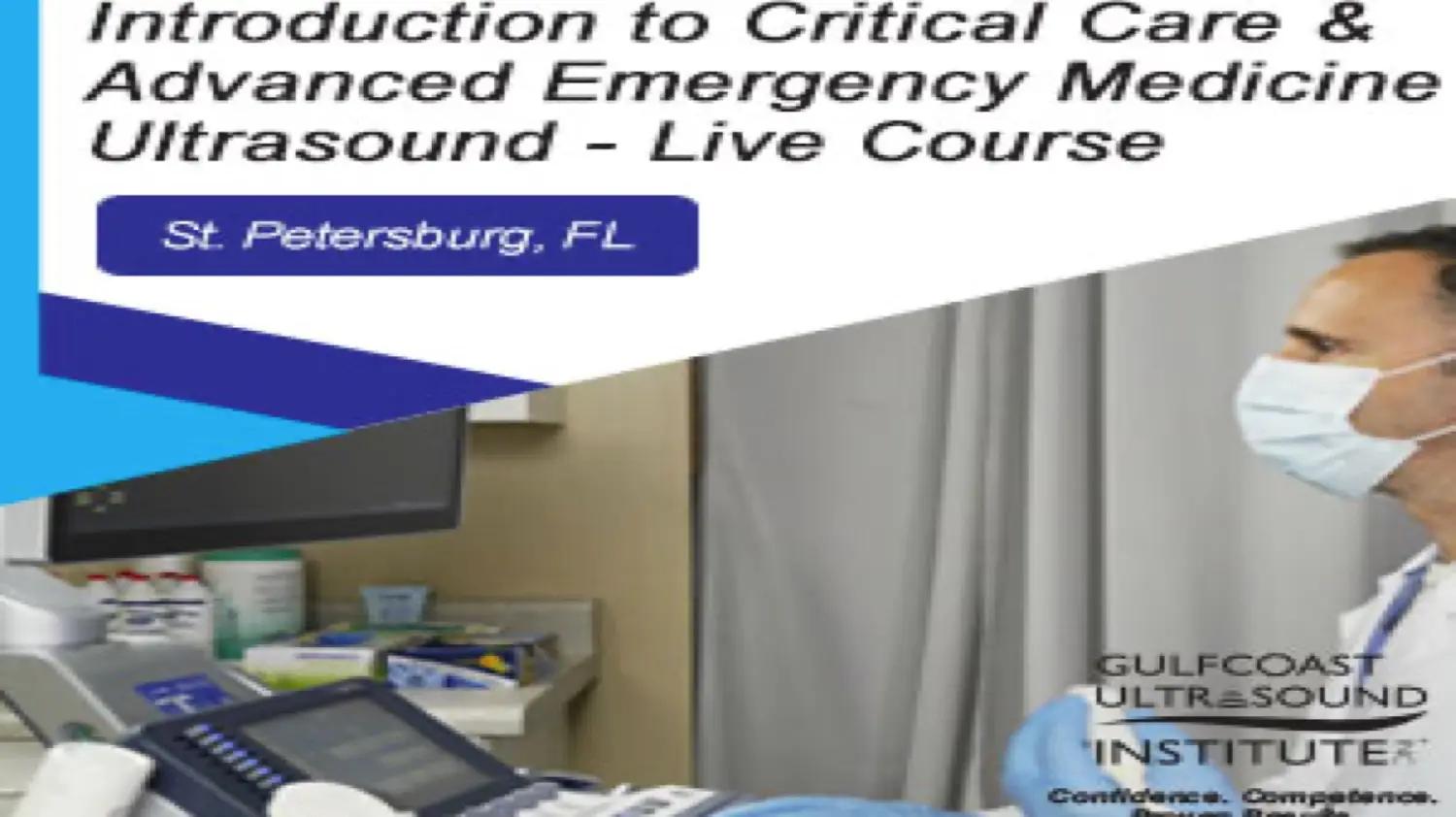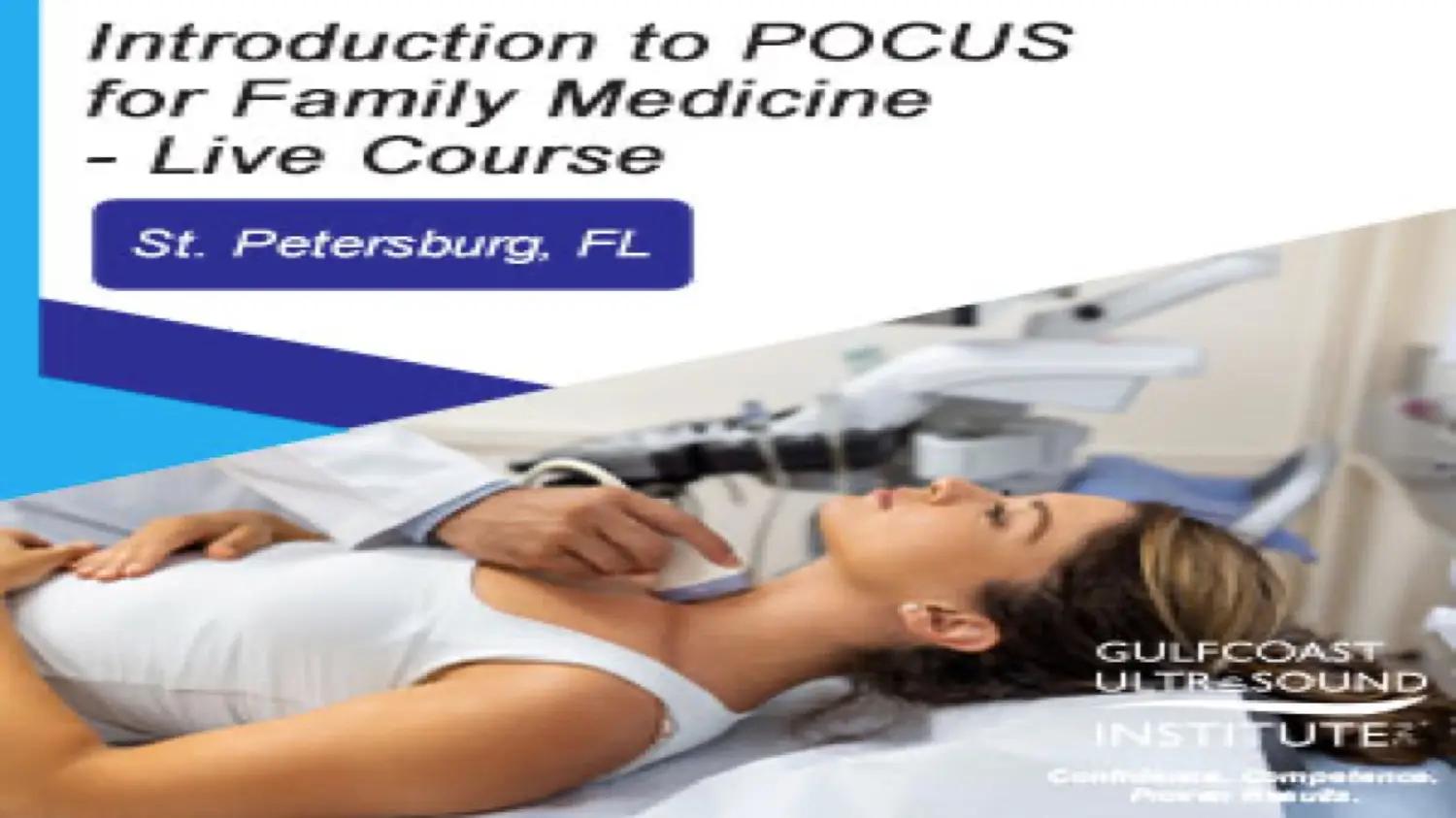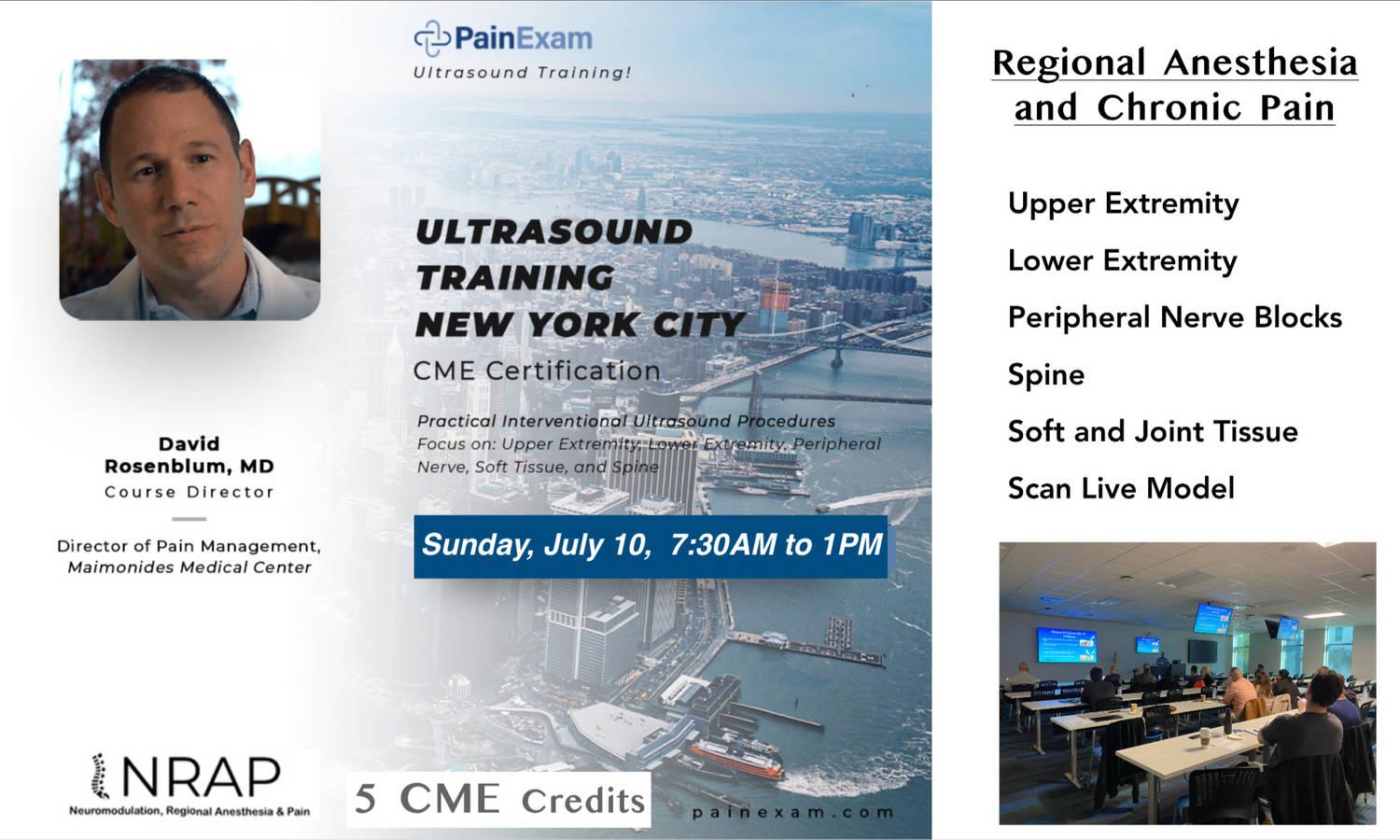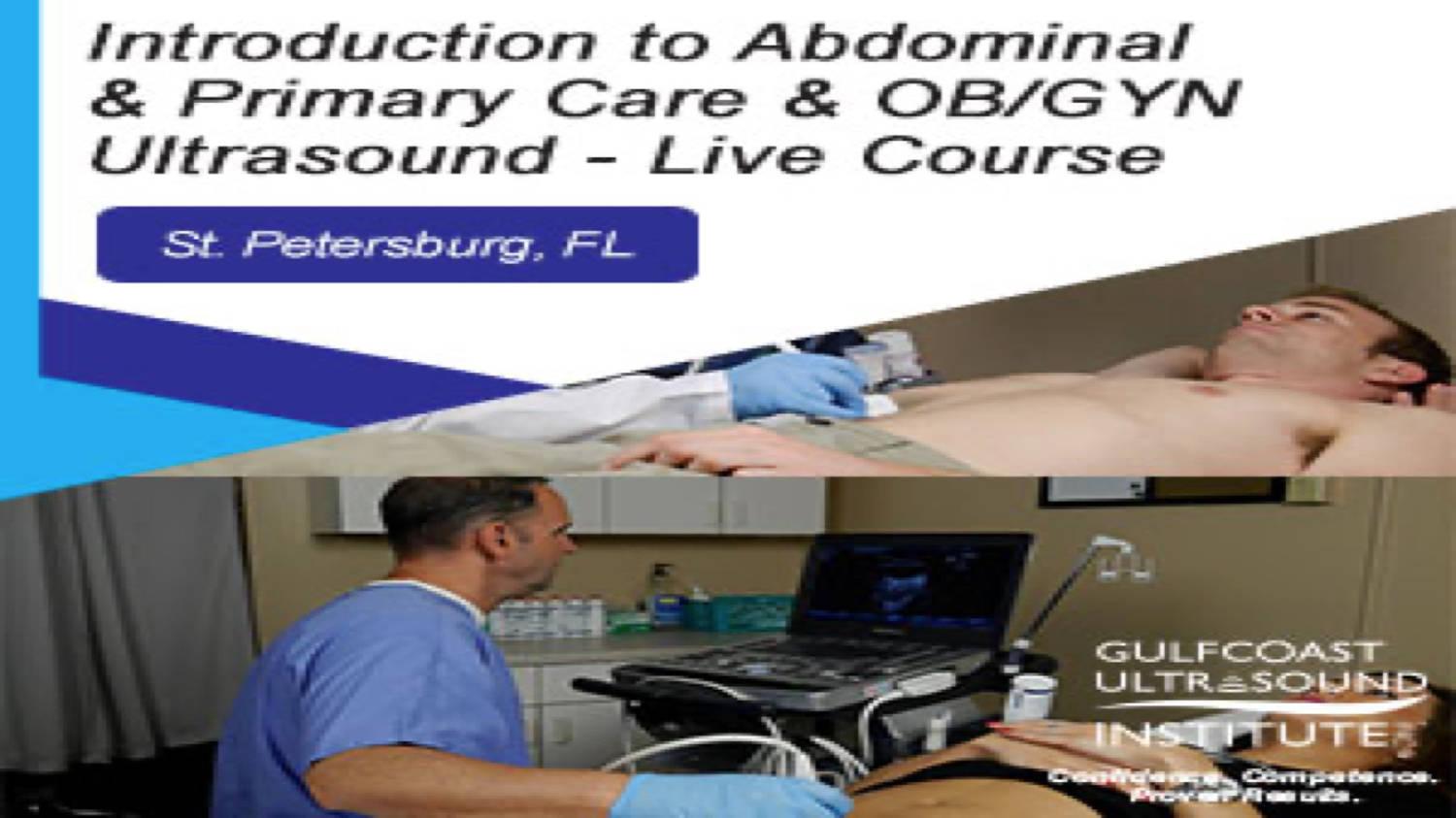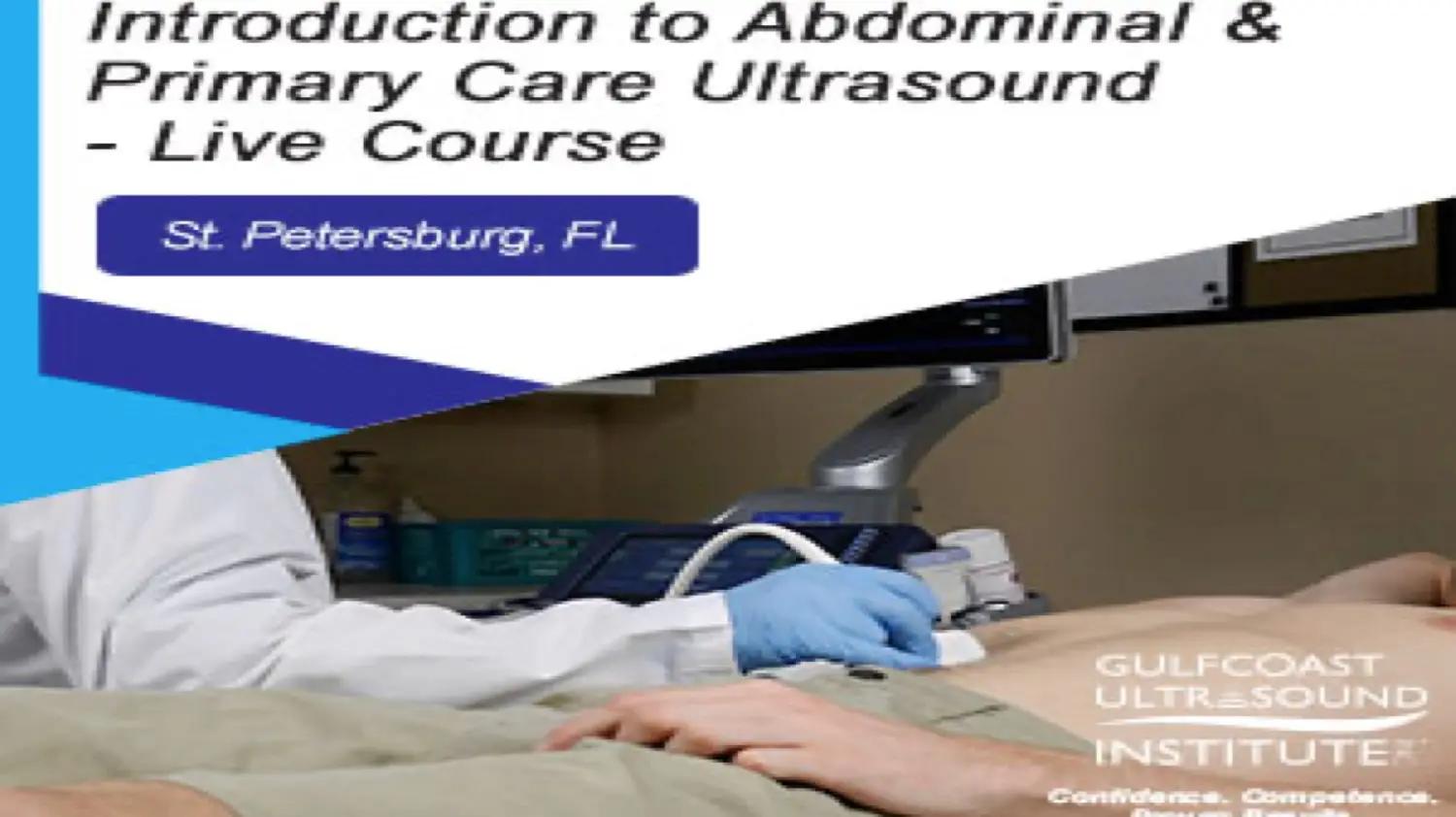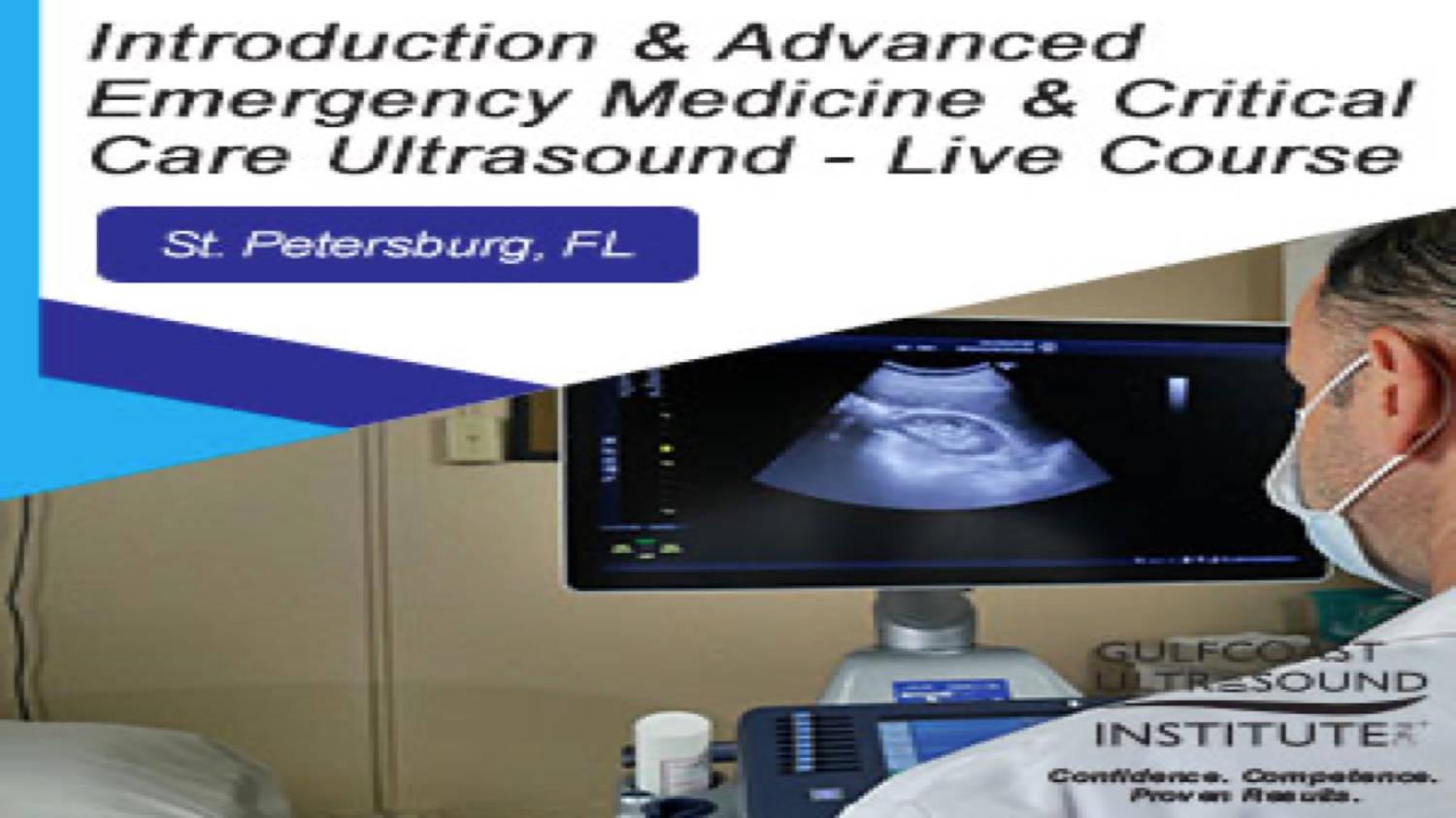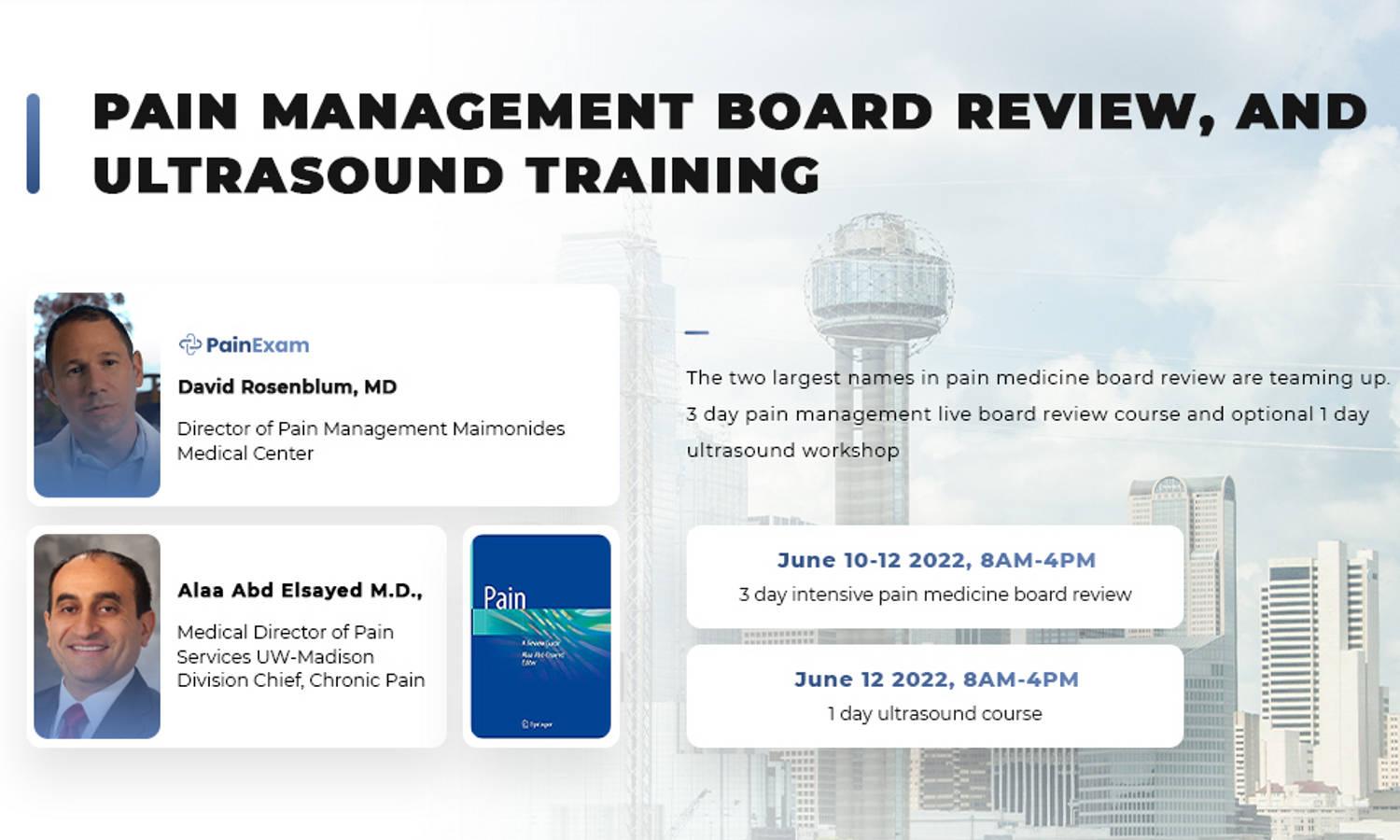
Introduction and Advanced Emergency Medicine Ultrasound (Jun 20 - 21, 2024)
Introduction and Advanced Emergency Medicine Ultrasound is organized by Gulfcoast Ultrasound Institute (GCUS) Inc. and will be held from Jun 20 - 21, 2024 at Gulfcoast Ultrasound Institute, St. Petersburg, Florida, United States of America.
Description:
The Blended Introduction & Advanced Emergency Medicine Ultrasound CME Course provides participants with a strong foundation to perform and/or interpret the core and advanced ultrasound applications in an emergency setting as outlined in the ACEP and WINFOCUS ultrasound practice guidelines. These courses are taught by leading emergency medicine and critical care ultrasound experts and incorporate comprehensive online lectures and interactive case presentations with fifteen (15) months of unlimited access PLUS two (2) days (12 hours) of 3:1 faculty-to-participant ratio hands-on scanning with live models and phantoms at our facility in St. Petersburg, FL. The hands-on workshop provides extensive hands-on skills training with the industry-leading 3:1 participant-to-instructor ratio with live models and inanimate phantoms to allow the learner to immediately integrate the skills learned into clinical practice. For the best ultrasound education experience, completion of the online course prior to hands-on scanning is recommended. *Please note, that you must complete all modules within the online course to receive your CME certificate.
Learning Objectives:
• Increase participant’s knowledge to better perform and/or interpret Emergency ultrasound examinations
• State the basic fundamentals of ultrasound physics and demonstrate appropriate optimization of system controls.
• Perform ultrasound evaluation of the trauma patient (E-FAST exam) and pneumothorax.
• Demonstrate scan protocols for focused evaluation of the abdomen, aorta, female pelvis, and adult heart.
• State an algorithm for uses of bedside ultrasound during cardiac arrest, shock & hypotension.
• Demonstrate image orientation, transducer preparation, and scan protocols for performing the use of ultrasound guidance for vascular access, pericardiocentesis, paracentesis, hemothorax, lumbar puncture, and ET placement.
• Outline protocol for focused evaluation of DVT.
• Differentiate normal/abnormal image characteristics of the abdomen, female pelvis, first trimester OB, and ectopic pregnancy.
• Increase competence to incorporate protocols, scan techniques, and interpretation criteria into clinical practice.
• Increase the participant's knowledge to better perform and/or interpret advanced emergency medicine ultrasound examinations.
• Perform a focused cardiac ultrasound examination.
• Assess hydration status and fluid responsiveness in emergency and critical care settings.
• Identify sonographic characteristics associated with abdominal sepsis involving the hepatobiliary, renal, and GI systems.
• Outline indications and applications of color Doppler in the emergency and critical care setting.
• Perform ultrasound evaluation of the lung, ocular, soft-tissue, musculoskeletal, and bony cortices in the emergency department.
• Demonstrate the use of ultrasound guidance for peripheral vascular access.
• Recognize the sonographic appearance of individual nerves and list the advantages.
• Perform ultrasound evaluation of the acute scrotum
• Identify potential triggers of heart failure.
• Evaluate and assess heart failure through echocardiography.
• Outline the training requirements and indications for transesophageal echocardiography.
Topics:
• Imaging Fundamentals
• Emergency Ultrasound for Obstetrical and Gynecological Conditions
• Ectopic Pregnancy
• Spontaneous Abortion
• PID and Masses
• Ultrasound-Guided Vascular Access
• Abdominal Scanning Fundamentals
• Ultrasound in Trauma: FAST and E-FAST
• Abdominal Cases in Emergency Medicine-Renal
• Abdominal Cases in Emergency Medicine-Biliary and AAA
• Focused Cardiac Ultrasound
• Rapid Ultrasound for Shock and Hypotension
• Ultrasound-guided emergency and Critical Care Procedures
• Evaluation of DVT
• Doppler and Color Flow Imaging for POC Applications
• Focused Cardiac Ultrasound
• Advanced Ultrasound Evaluation of Shock
• ABC’s: Sonography in Shock and Sepsis
• Venous Ultrasound in Point of Care
• Assessment of Hydration Status and Fluid Responsiveness
• Ultrasound Guided Peripheral Vascular Access
• Advanced Emergency Medicine Applications
• Nerve Blocks for Emergency Medicine Applications
• Interactive Case: What’s Your DX?
• Sonography of the Acute Scrotum
• Cardiac Doppler & Focused Calculations
• Ultrasound Evaluation of Heart Failure
• Ultrasound Cases in Emergency Medicine
• BONUS! Introduction to Transesophageal Echocardiography (not covered in the scanning skills workshop)




